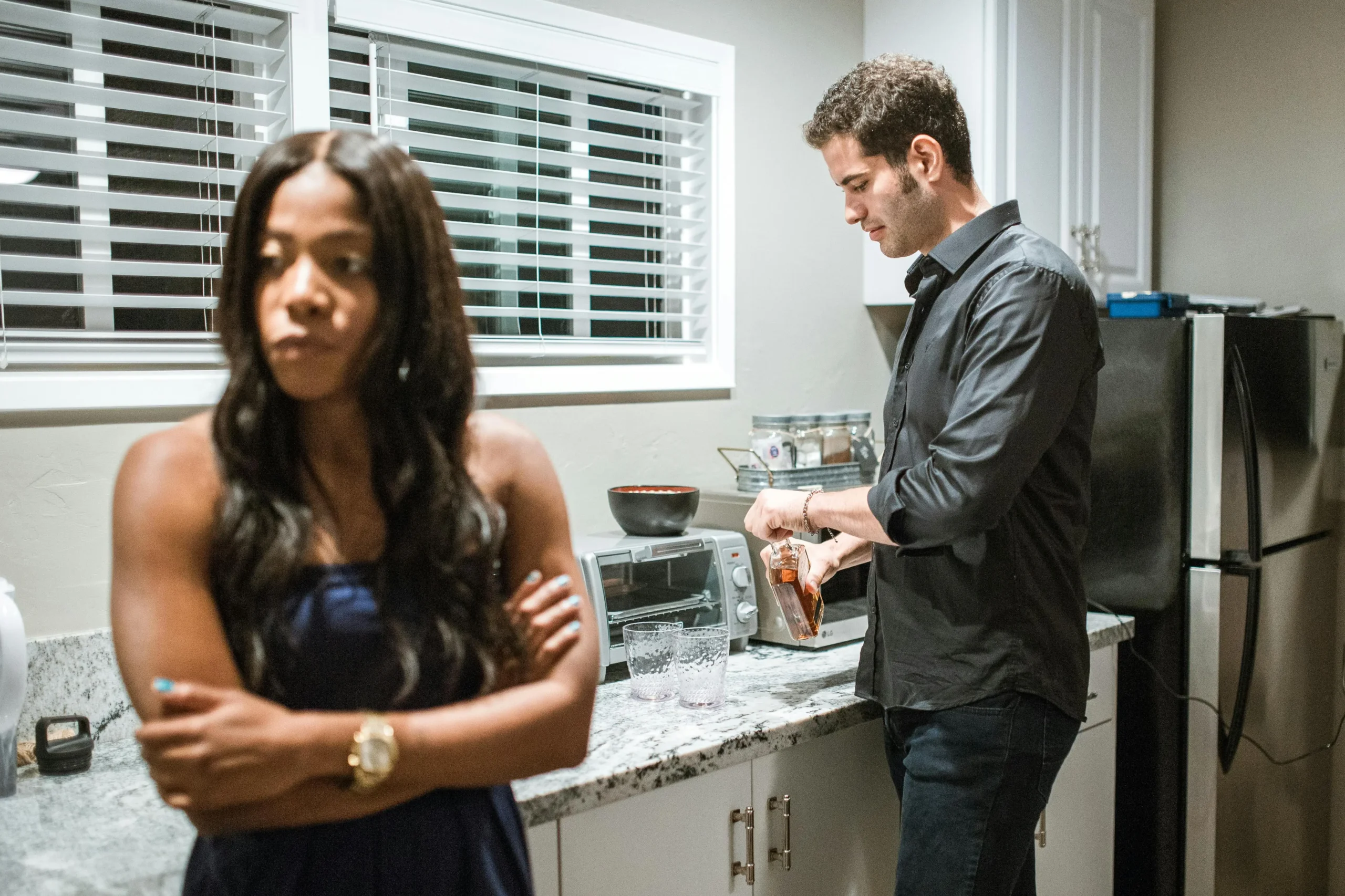Introduction: Affairs After Marriage – The Silent Storm Many Don’t Talk About
Affairs after marriage are more common—and more painful—than most people admit. Whether you’ve lived through one, feared it, or struggled to understand why it happens, infidelity continues to shake the very core of romantic relationships.
I’ve heard stories from people who were betrayed, those who strayed, and couples trying to pick up the pieces. One thing is clear: understanding why people have affairs after marriage is essential not just for healing, but for prevention too. These aren’t just bad decisions—they’re often the result of unmet needs, emotional disconnection, or personal struggles that go unspoken.
The emotional and societal impact is massive. Betrayal in a marriage can lead to depression, trauma, anxiety, and social stigma—not to mention the inner battle with shame and guilt. But when we start asking the right questions—Why do people have affairs after marriage? What are they looking for? Can couples actually recover from it?—we begin to reclaim control, clarity, and compassion.
So let’s explore this together. If you’re navigating the aftermath of infidelity or trying to understand how to protect your relationship, you’re in the right place.
Why Do People Have Affairs After Marriage? (Root Causes Explained)
1. Misconceptions About Love and Commitment Can Fuel Affairs After Marriage
Many of us grow up believing love should feel effortless. We think if we’ve found “the one,” the spark will never fade. But reality tells a different story. Real love—the kind that lasts—isn’t just a feeling; it’s a choice.
When the honeymoon phase ends and life gets real, that emotional high wears off. And if someone mistakes that shift for failure, they may seek excitement or connection elsewhere. That’s often why people have affairs after marriage—to chase the feeling of being “in love” again.
2. Unmet Emotional and Physical Needs: One of the Key Signs of Infidelity After Marriage
Let me say it plainly: unmet needs don’t justify cheating—but they do help us understand it.
When a spouse feels lonely, undervalued, or emotionally neglected, they become vulnerable to outside attention. One of the early signs of infidelity after marriage is a growing emotional distance—less communication, less affection, and more secrecy.
Managing emotional triggers in romantic relationships can help couples stay connected before this gap widens. Unfortunately, many couples don’t recognize these early red flags until it’s too late.
According to a 2023 survey by the American Survey Center, less than half (46%) of women and only 34% of men report that a partner or spouse has ever cheated on them. However, these numbers may undercount the incidence of infidelity, as they only capture known occurrences. The rise of social media has also increased opportunities for infidelity, with platforms like Facebook facilitating connections that may lead to emotional affairs.
3. Seeking Novelty and Excitement Can Lead to Affairs After Marriage
Marriage can start to feel repetitive. Work, kids, routines—while comforting, they sometimes leave people craving novelty. That craving often pushes individuals to seek out what’s forbidden: risk, desire, and spontaneity.
Emotional affairs vs physical affairs in marriage both stem from this same desire for intensity. Emotional affairs might start as deep conversations and harmless connections—but they can be just as damaging, especially when they involve secrecy and emotional withdrawal from the marriage.
4. Affairs After Marriage Often Start With Lack of Boundaries and Tempting Opportunities
Not every affair is intentional. Sometimes it starts with a colleague’s compliment or a late-night chat with an old friend. If emotional or physical boundaries aren’t clearly defined and protected, it becomes easier to justify a slip.
Many people don’t realize that secrecy, hidden texts, and emotional intimacy with someone outside the marriage already cross a line. Emotional affairs vs physical affairs in marriage may look different—but the betrayal cuts just as deep.
5. Personality Traits and Attachment Styles Make Some People More Likely to Cheat
It’s uncomfortable to admit, but some people are more prone to affairs after marriage due to personality traits or childhood wounds. Traits like impulsivity, low empathy, or a need for constant affirmation are common patterns among those who cheat.
Insecure attachment styles—whether anxious or avoidant—can also lead individuals to seek security or connection outside their marriage. And until these patterns are understood and addressed, the cycle is likely to repeat.
6. Stress, Transitions, and Life Overload
Stress doesn’t just affect your health—it affects your marriage. Major life transitions like becoming parents, financial pressure, or career changes can leave couples emotionally drained and disconnected.
These vulnerable times can become breeding grounds for affairs after marriage. The person involved often isn’t looking to destroy their family—they’re looking for relief, support, or to feel “seen” again.
Recognizing and working through emotional triggers in long-distance relationships or high-stress situations can help couples stay emotionally available to each other, even when life gets tough.
7. Communication Breakdown and Chronic Dissatisfaction
This is the slow, silent killer of marriages. No yelling, no drama—just roommates under the same roof.
You stop talking. You stop asking how each other feels. You start assuming the worst. That chronic dissatisfaction, paired with poor communication, becomes fertile ground for infidelity.
This is also when signs of infidelity after marriage start surfacing—late-night phone use, unexplained absences, a sudden uptick in grooming or mood swings. It’s subtle, but it’s real.
For those healing, understanding and healing from emotional triggers in past relationships becomes essential. Sometimes, unresolved trauma from childhood or previous relationships resurfaces in the form of betrayal or self-sabotage. Read my blog on how to improve communication in relationships.

The Impact of Affairs After Marriage: When Trust Shatters and Hearts Break
When affairs after marriage happen, the impact reverberates far beyond just the two people involved. It’s an emotional earthquake that reshapes lives in profound ways. From my conversations with couples and individuals affected, I’ve learned that the fallout can be overwhelming—but it also opens the door to deep healing if handled with care.
1. Emotional Fallout for Both Partners: The Hidden Wounds of Affairs After Marriage
The emotional toll of infidelity doesn’t discriminate. The betrayed spouse often faces heartbreak, anger, confusion, and a crisis of self-worth. Meanwhile, the one who strayed may feel guilt, shame, and fear of losing everything they once took for granted.
Understanding how to deal with a cheating spouse emotionally is crucial in this phase. It’s a complicated mix of emotions—resentment, grief, and even moments of love—that must be navigated carefully to avoid further damage.
2. Shattered Trust and Suspicion: The Core of Damage in Affairs After Marriage
Trust is the bedrock of marriage. Once broken by an affair, suspicion takes its place. Everyday actions become scrutinized, and innocent behaviors get misinterpreted.
One of the hardest questions I’ve heard couples ask is, “Can a marriage survive an affair?” The answer is yes—but only if both partners are willing to commit to rebuilding trust. This process is slow and requires total honesty and vulnerability. Read my blog on trust in relationships.
3. Breakdown in Communication and Openness: The Silent Killer After Affairs After Marriage
Following infidelity, couples often fall into a communication freeze. The betrayed partner may shut down, fearing more pain, while the other might avoid difficult conversations out of guilt or shame.
This breakdown prevents healing. Learning to communicate openly—sharing feelings without judgment or defensiveness—is the first step toward restoring connection. Remember, managing emotional triggers in romantic relationships helps create a safe space for these tough talks.
4. Loss of Physical and Emotional Intimacy
Affairs don’t just damage trust—they damage intimacy, too. Physical affection might feel awkward or forced, while emotional closeness can seem impossible. For many couples, rebuilding this intimacy feels like learning to walk again.
What’s important here is patience. Healing intimacy after affairs after marriage takes time, gentle effort, and often professional support. Read my blog the truth about physical intimacy.
5. Impact on Children and Family Dynamics
If there are children involved, the impact multiplies. Kids sense tension, changes in household dynamics, and sometimes even blame themselves. The family unit feels destabilized.
Addressing emotional triggers in long-distance relationships or stressful family situations can be vital for protecting children’s emotional well-being. Transparency with kids—age-appropriately—is often recommended by therapists.
6. Financial and Legal Consequences of Affairs After Marriage
Infidelity can have serious financial and legal repercussions, especially when separation or divorce enters the picture. Hidden spending, legal fees, and asset division can add stress to an already fragile situation.
Couples facing these consequences often ask, “Can a marriage survive an affair?” and also, “How do I deal with the financial fallout?” Seeking legal advice and financial counseling early is crucial to protect all parties involved.
What to Do After Affairs After Marriage: Steps Toward Healing and Hope
When an affair surfaces, the immediate aftermath can feel like chaos. But what comes next defines the future of the relationship—whether it’s rebuilding or ending with dignity.
1. Initial Response: Space, Safety, and Emotional Clarity
The first priority is emotional safety for both partners. This might mean taking some space to process feelings, avoiding blame, and creating boundaries for communication.
I often recommend couples allow some breathing room before diving into heavy conversations—this can prevent reactive hurt and create clarity.
2. Open and Honest Conversations
When ready, honesty is the only way forward. This means sharing truths about what happened, why, and how both partners feel without judgment or interruption.
Discussing “how to deal with a cheating spouse emotionally” includes learning to listen deeply and speak vulnerably.
3. The Role of Couples Therapy or Counseling
Professional guidance is often a game-changer. Couples therapy provides a structured space to unpack feelings, learn new communication tools, and begin rebuilding trust.
Many therapists specialize in infidelity recovery and help address the emotional triggers in past relationships that often contribute to affairs.
4. Rebuilding Trust With Transparency and Patience
Trust doesn’t return overnight. Rebuilding it takes consistent transparency—sharing schedules, phones, feelings—and infinite patience.
Both partners must commit to this slow process, often with setbacks but also with progress.
5. Addressing Root Problems, Not Just Symptoms
It’s tempting to focus on the affair itself, but the deeper issues—unmet needs, communication breakdown, stress—must be addressed to prevent recurrence.
This is why understanding why people have affairs after marriage helps prevent future betrayals.
6. Preventing Relapse: Establishing New Boundaries
New boundaries around friendships, technology use, and emotional openness are essential to safeguard the marriage moving forward.
Couples often revisit these boundaries regularly in their ongoing check-ins.

Prevention: Building an Affair-Resistant Marriage That Thrives
Prevention is always better than cure, especially when it comes to affairs after marriage. Here’s what I’ve learned works best for couples committed to long-term love:
1. Prioritize Open Communication to Prevent Affairs After Marriage
Making space for honest, ongoing conversations about feelings, desires, and frustrations helps couples stay connected and catch problems early.
2. Keep Emotional and Physical Intimacy Alive to Ward Off Affairs After Marriage
Regular emotional check-ins and physical affection aren’t optional—they’re relationship essentials. Even small gestures matter.
3. Practice Radical Transparency to Build Trust and Prevent Affairs After Marriage
Being open about friendships, work relationships, and technology use prevents secrets that can lead to suspicion.
4. Address Issues Before They Escalate to Stop Affairs After Marriage
Don’t wait for resentment or dissatisfaction to fester. Bring up problems early, seek support, and tackle emotional triggers head-on.
5. Commit to Growth and Ongoing Check-Ins to Stay Ahead of Affairs After Marriage
Relationships evolve. Committing to personal growth and regularly checking in with your partner builds resilience and keeps love alive.
Conclusion: Why Affairs After Marriage Demand Understanding, Healing, and Commitment
I’ve seen firsthand how painful and confusing affairs after marriage can be—not just for the couple but for entire families. But understanding why people have affairs after marriage and recognizing the signs of infidelity after marriage are critical first steps toward healing and prevention.
Whether you’re grappling with how to deal with a cheating spouse emotionally or wondering can a marriage survive an affair?, remember this: recovery is possible with honest communication, patience, and professional support when needed. Affairs don’t have to mean the end—they can become a turning point for deeper connection and growth.
Ultimately, the choice to rebuild or move on belongs to you. But armed with awareness, compassion, and a commitment to addressing root issues—not just symptoms—you can find peace and clarity.

FAQs About Affairs After Marriage
Q1. Why do people have affairs after marriage?
A. People often have affairs due to unmet emotional or physical needs, desire for excitement, stress, or communication breakdown. Sometimes it’s about opportunity or personality traits, but underlying issues in the marriage usually play a big role.
Q2. What are the common signs of infidelity after marriage?
A. Common signs include secrecy around phones or devices, emotional distance, changes in intimacy, unexplained absences, and increased defensiveness. However, it’s important to avoid jumping to conclusions without open dialogue.
Q3. How to deal with a cheating spouse emotionally?
A. Dealing with a cheating spouse emotionally means allowing space for your feelings, seeking support, setting clear boundaries, and working toward honest conversations—often with the help of counseling to navigate complex emotions.
Q4. Can a marriage survive an affair?
A. Yes, a marriage can survive an affair, but it requires commitment from both partners to rebuild trust, communicate openly, and address the root causes that led to the affair. Patience and professional help are often necessary.
Q5. What’s the difference between emotional affairs vs physical affairs in marriage?
A. Emotional affairs involve forming a deep emotional connection outside the marriage, often leading to secrecy and intimacy without physical contact. Physical affairs involve sexual intimacy. Both can be equally damaging to a marriage and require healing.

